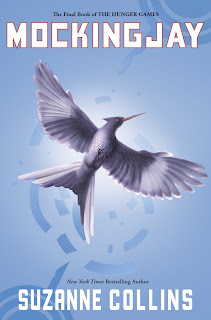For this entry for the
1001 Film Club, Fitzcarraldo, I have no one to blame but myself. As an official member in good standing I will periodically get a turn in the rotation to select the movie-of-the-week, and this was my first shot. It wasn’t a random selection at all, but neither was it a simple matter of identifying a flick about which I could say “this is a movie everyone says is great and I really need to see for myself”. In fact, choosing Fitzcarraldo didn’t have a lot to do with the film’s reputation of quality at all, but rather with how bizarre the story (stories, really) behind the film happen to be.
Here’s what I had heard about Fitzcarraldo going in: it’s a story about a doomed plan to build an opulent opera house in the Amazon jungle, which somehow leads to a series of events culminating in dragging a functioning steamship up the side of a mountain. That struck me as a bizarre bit of fancy, but clearly I am a big fan of the bizarre and the fantastic. (I rather enjoy a series of films which hinge on the existence of such physical impossibilities as an empire ruled from a central world which is entirely covered by a single city, and a space station capable of channeling enough energy to explode planets, for example.) What really drove the idea of the movie into my brain were two further factoids: 1, that it was supposedly based on a true story; 2, that rather than using special effects or tricks of any kind, the filmmaker went ahead and actually dragged a steamship up a freaking mountain with the cameras rolling. This I gotta see.
The filmmaker in question is Werner Herzog, and I’m also a fan of his (at least in general principle) after having watched Grizzly Man a few years ago. So, with high hopes, I gave myself over to the movie in all its two hour and thirty-seven minute running time glory.
And in the end I’m glad I did, but the movie is such a mixed bag that I can’t imagine I would ever recommend it to someone unreservedly. It’s a slow-moving film, for one thing, which doesn’t really justify its bloated length. The location shots in South America, in the town of Iquitos and on the Amazonian tributaries, are gorgeous and undeniably evocative of the place. But they linger, and linger, and linger, well beyond what’s necessary to immerse the viewer in the story. That’s doubly true for the scenes involving the steamship slowly climbing the mountain (really more of an elevated ridge between two rivers), although I found myself torn about those. Rising on a system of pulleys and ropes drawn simultaneously by the ship’s own engine and teams of natives pushing on giant wooden winches, the ship ascends incredibly slowly, and in a wide shot you practically have to stare at the edge of the frame to watch the bow of the ship disappear inch by inch in order to perceive any motion at all. It seems gratuitous and deadly dull, but at the same time, it’s remarkably effective at conveying the weight of the steamship and the insane difficulty of moving it at all, let alone uphill. Would the story have the same narrative weight without that deliberate visual meditation on the ship’s physical weight? I’m willing to give Herzog the benefit of the doubt on that particular judgment call.

Let me pause a moment and try to give a more sensible explanation of the plot. The main character is Brian Fitzgerald (his last name is mispronounced by the local Peruvians as “Fitzcarraldo”), who is an impractical dreamer and opera fan. He longs to have an opera house in his adopted home of Iquitos, which he relocated to in order to build the trans-Andean Railway (a venture which failed). He knows the opera house would require immense wealth to build, so he needs a way to make a lot of money fast, and the booming industry in the area is rubber. Most of the good lands for harvesting rubber are already claimed, but he studies the maps and identifies a parcel that is not spoken for and would be ideal except it is not ship-accessible. The land is on the Ucayali river, which could be useful in working the land, but once the rubber is harvested it could not be transported anywhere because there are impassable rapids where the Ucayali meets the Amazon; for that matter, the same rapids would prevent a working ship from reaching the upriver unclaimed parcel in the first place. However, the more navigable Pachitea river runs very close to the Ucayali well upstream of the parcel. The solution seems simple: steam up the Pachitea, jump over to the Ucayali, steam down a ways, work the land, steam back up and jump back over to the Pachitea, and transport the goods to any number of places along the Amazon. Except substitute “expend enormous effort of time and labor and minor engineering miracles to drag the 320-ton boat” for “jump”. But after that, make your fortune in rubber and then use it to underwrite the opera. Cake!
I should note at this point that I learned after watching the movie that, in the true story upon which Fitzcarraldo is loosely based, the steamship weighed about 1/10 as much and was disassembled, carried across an isthmus, and reassembled. Which strikes me as a crucial distinction. But, as I always say, never let the truth get in the way of a really good story. And Fitzcarraldo is a story about obsession, two obsessions really (the fictional protagonist’s obsession with bringing opera to Iquitos no matter what elaborate hoops he has to jump through, and Herzog’s real life obsession with capturing the spectacle of a steamship crawling up a mountainside on film), and obsession is a topic near and dear to my own heart, a subject which fascinates me and a phenomenon which takes hold of me more often (and sometimes more maniacally) than I should probably be proud to admit. Although of course this entire blog project is a monument to the breadth and depth of my obsessions, so there’s that.
At any rate, lush scene-setting and ponderous pacing aside, one of the true highlights of the film is Klaus Kinski as Brian Fitzgerald. He comes across throughout the entire movie as slightly-to-very unhinged, which makes perfect sense considering how his own obsessions have him totally mentally throttled, and his buggy little eyes are just hypnotic whether he’s managing to mostly hold everything together or completely losing his mind. It’s hard to believe that Kinski wasn’t Herzog’s first choice for the role. I’m sure Jason Robards would have performed admirably, but man.
Kinski even manages to pull off the happy ending, which I have to admit completely surprised me. Given my overly developed sense of self-deprecation, I tend to expect any story about obsession to end badly (thus presenting me with yet another lesson which I intellectually understand but refuse to take to heart). And in a sense, the grand scheme at the heart of Fitzcarraldo does fail: they get the steamship over the ridge and into the Ucayali, they have a great big party, and while Fitzgerald is passed out that night the chief of the natives who provided all the physical labor machetes the mooring lines. All along Fitzgerald wondered why the natives were helping, beyond their fascination with the “white ship”, and it turns out the answer is they wanted to make a sacrificial offering to the angry river gods by sending the white ship into the rapids. The steamer barely survives the unexpected early-morning tumble down the rapids, at which point Fitzgerald is back where he started with no rubber harvested and his government grant of land use about to expire, without enough time to do it all over again.
So all he can do is sell the damaged steamer to make back a fraction of the money. But instead of despairing, he takes that last bit of cash and uses it to buy three things and rent one other. He also makes the sale of the steamer contingent on being able to use it for one final trip. The movie ends with Fitzgerald riding the steamer back to Iquitos, with the full cast of a production of Bellini’s The Puritans, performing in costume on the topdeck (the performers’ time being what he rented). Fitzgerald is wearing the filthy suit he dressed in every day of his doomed expedition, with a new black tailcoat (purchase number one) on top of it. He smokes a fine cigar (purchase number two) and stands beside a red velvet upholstered chair (purchase number three, and undisputably my favorite as he bought it to fulfill a promise he made to a fellow opera lover that he’d get a seat in the box on the opera house’s opening night; said fellow enthusiast is a wild pig). And all of Iquitos comes out to cheer wildly at his return, and credits. It really, really shouldn’t work because it’s so goofily cheesey, but again, all due credit to Kinski for selling the soulful satisfaction that Fitzgerald must feel in managing, after a fashion, to bring opera to Iquitos, all conveyed without a word in the way that he smiles and holds his head high and sucks contentedly on his cigar.
Obsessions can lead you to greatness, or they can lead you to ruin … OR they can lead you down interesting less-traveled paths and help you figure out non-standard ways of getting what you want. It’s the difference between focusing on where you’d like to be and fixating on how you end up getting there.

















